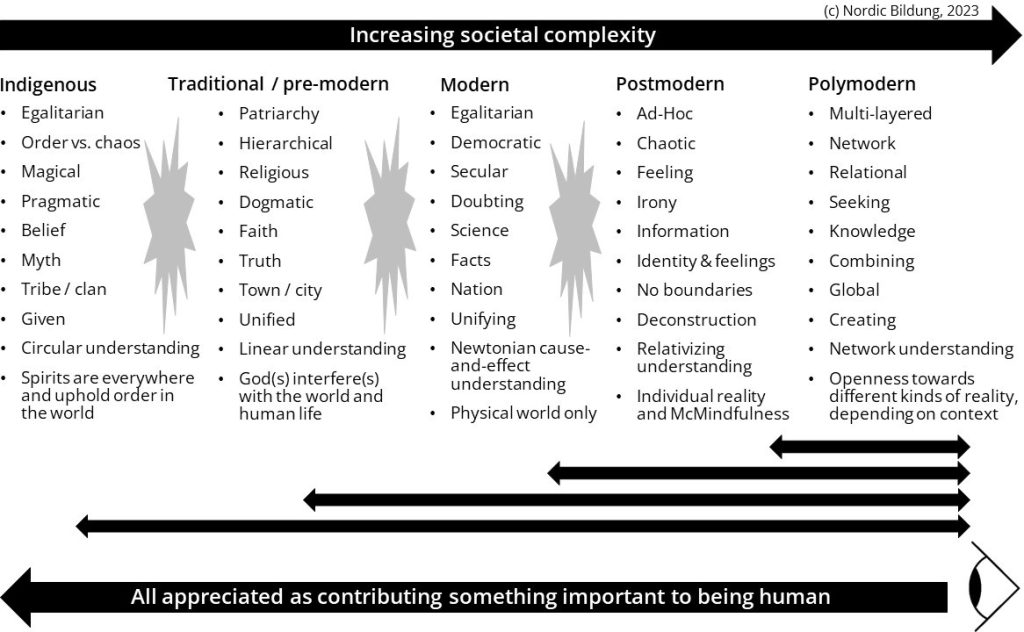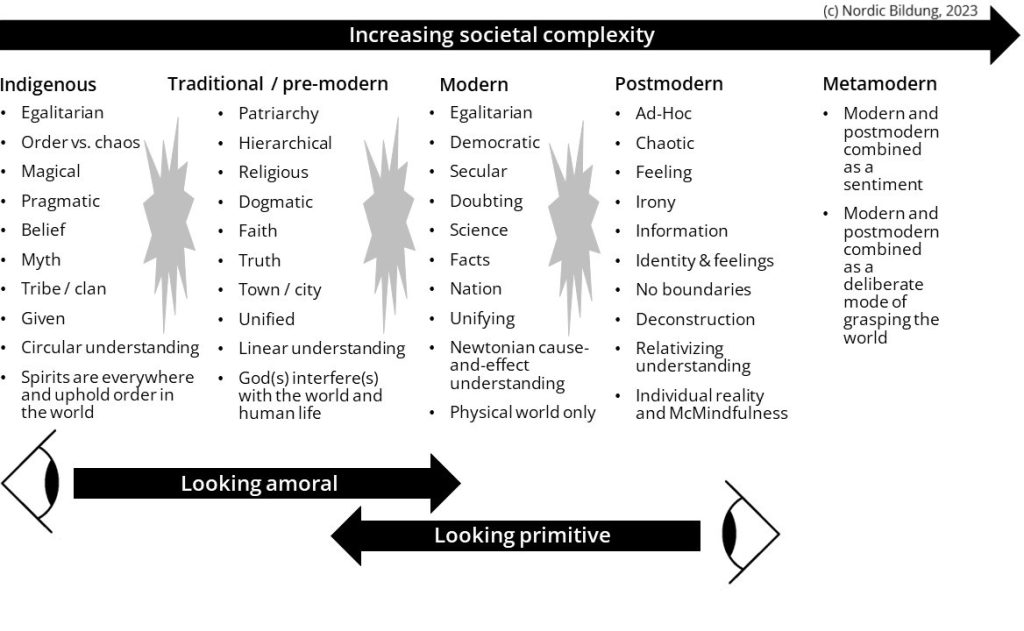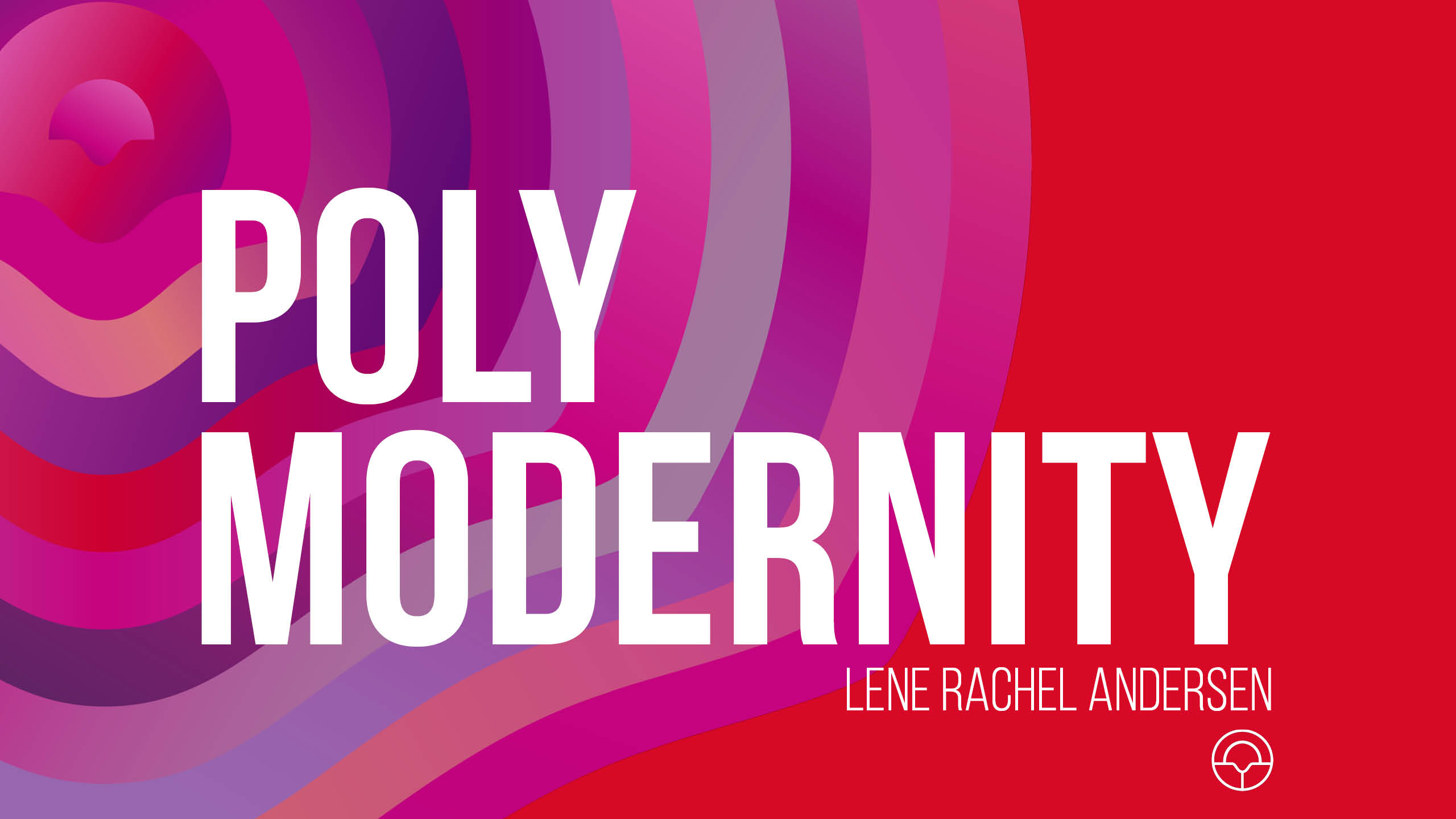
The world is changing and becoming more complex.
Polymodernity provides us with a framework for understanding ourselves and our societies in a more complex way, as it integrates indigenous, pre-modern, modern, and postmodern cultural codes.
Indigenous culture can provide a connection to nature that we have lost and which re-introduces the circularity that we need to solve the climate crisis etc.
Premodern culture provided strong moral guidance in the shape of what we today call religion; we need a shared moral compass and ways to share and discuss moral norms in our societies; religion is an aspect of our spiritual life that we need in order to be fully human.
Modernity gave us equal rights and opportunities, democracy, science, and the obligation to doubt and think.
Postmodernism allows us to see ourselves, our culture, and our civilization from the outside and deconstruct them to study their parts and their inner structures.
We need all of this to create meaning and hope and viable solutions in the 21st century.

The book was previously published under the title Metamodernity. This new version is 99% the same as the old, we just changed the name of the term metamodernity to polymodernity.
Polymodernity is a proposed structure for a multi-layered cultural code that we can create to better grasp our very complex times. It is conceived as a collective cultural endeavor and a way to rethink society, economy, globalization, religion, and a host of things.
This is different from metamodernism, where, first of all, there are generally just two cultural codes: modernity and postmodernism, not four; secondly, metamodernism is already here. It is a sentiment that combines the modern and the postmodern.
There is a very fruitful ‘ecosystem’ of metamodern thinkers who explore the times we are in and the sentiments this evokes: the need for modern sincerity and the craving for postmodern irony.
Polymodernity and metamodernism share the desire to figure out what might come after postmodernism. Where they differ, besides combining either two codes or four, is that metamodernism mainly explores an inner sentiment, polymodernity explores societal structures.
Polymodernity

Metamodernism

You are most welcome to download and use our slides as long as you do not change them, and as long as you cite this as your source:
Nordic Bildung & Lene Rachel Andersen https://www.nordicbildung.org/polymodernity/
Particularly if you also send us an email at and tell us where you are using them.




